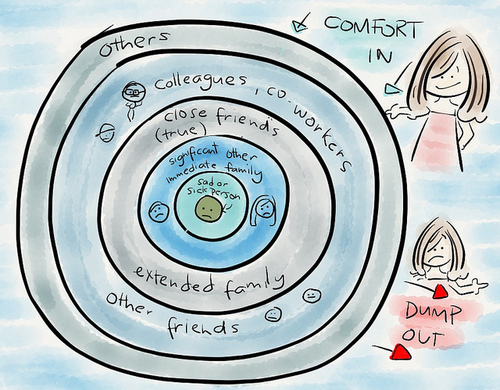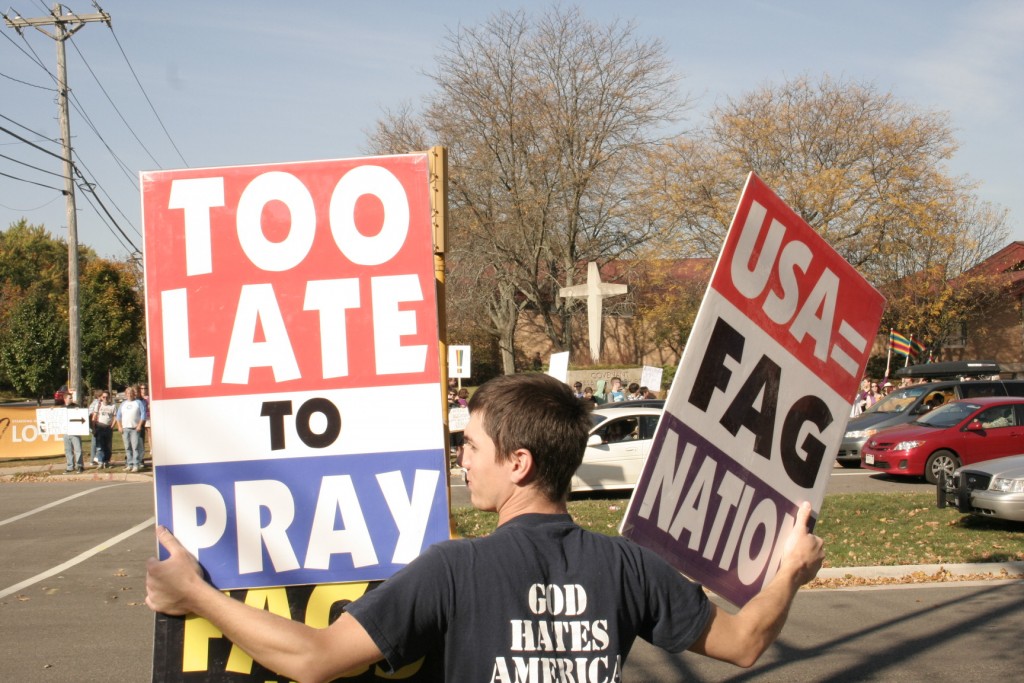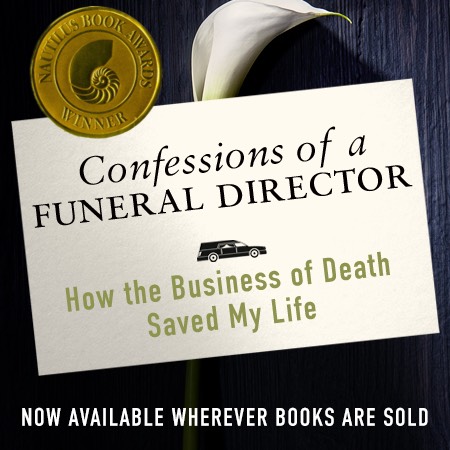10 Simple Ways to Avoid Being an Asshole around Death
One. Don’t use a death as an object lesson
The first piece I ever wrote for a magazine was about the death of Jackass crew member Ryan Dunn and how people were using his reckless driving death as an object lesson.
Even though it’s tough to do, especially when we want to teach our kids a lesson about “why drugs are bad” and “why you shouldn’t drink and drive”, turning a life into an object lesson grades against the heart of what it means to be human. People aren’t objects. And death isn’t a lesson. Death is this cauldron of feelings, loss, void, laughter, fear, … it’s everything that is human. Let’s keep it that way.
Two. Remember the Circles of Grief

The circles of grief (AKA the Ring Theory) is this: Imagine concentric circles (see photo above). The smallest ring in the center is the person closest to the deceased, whether that person is the deceased’s spouse, a parent, a child or all of the above. The next circle is representative of the immediate family and very close friends. A third ring could be extended family, close co-workers, etc. A fourth ring might be schoolmates, or church acquaintances, etc. The rings keep going.
The idea with the circles of grief is that comfort always goes in, and dumping always goes out. If you’re a secondary relationship, it’s not your right to dump all of your grief on the spouse of the deceased. If you’re a fourth ring relationship, you should NOT expect a close friend to comfort you. If you’re the closest to the deceased, it’s okay if you dump outward. And if you’re an outer ring, you should expect to comfort the inner rings. These circles act as a great template for any of us who are ever in a position to comfort the bereaved. If you act otherwise, you’re probably being an asshole.
Three. Avoid cliches
When people use comfort cliches like “you’ll see him again someday” or “things will get better”, they are often more concerned with comforting themselves than comforting the bereaved. Comfort cliches are the practical outpouring of death denial. Cliches are band-aids that people try to put on a massive wound. These band-aids oversimplify the problem, they minimalize grief and they trivialize the death. If you don’t want to be an asshole around death, avoid them at all cost.
Four. Don’t Join Westboro Baptist Church
Just saying.
Five. Don’t Say or Write Negative Things about the Deceased
This is simply death etiquette. It doesn’t matter if the deceased was the worst bastard you’ve ever known, it’s never cool or respectable to take a shot at someone when they can’t defend themselves. And nobody is more “unarmed” than when they’re dead.
Six. Don’t Fill Silence with Words
“The real art of conversation is not only to say the right thing at the right place but to leave unsaid the wrong thing at the tempting moment.” —
Dorothy Nevill
When you’re around grief, sometimes you speak too soon, so you decide to wait in silence. Your friend starts to cry. You respond to her tears with your own. Even though you want to respond with words, you know this isn’t the time for words. There are no perfect words here. There’s no perfect anything here. And so you wait.
You stay. Listen. Silence. You take her pain into your soul. Hours pass.
You’ve spoken, not with words or advice; not by trying to solve the problem; nor by placing a limit on your time. You’ve taken the uncomfortable silence, allow the grace for tears, for brokenness; you’ve allowed yourself to sit in the unrest without trying to fix it.
Seven. Don’t Make the Funeral about You
This past Saturday night, I stood there behind the register book, striking up a conversation with people as they enter the sanctuary. The viewing line snakes around the church, down the hall, and into the basement as we try to extend it through the corridors of the church so as to keep the line from going out into the hot and humid weather of a Pennsylvania summer. The family of the deceased is taking their time, talking to each and every person who has come out on this sweaty night.
“Other funeral directors stand by the family’s receiving line and tell them to keep their conversations short and simple”, one person stated.
“We don’t do that”, I said politely.
Another couple comes through the line and complains that they’ve been standing in line for half-an-hour AND by the look of things, they’ll probably be in line for another half-an-hour. “Can’t you do anything?” they beg.
After having this conversation about 10 times over the next hour, I’m getting tired of my joke and I’m getting tired of people complaining.
I want to pull them close to my face and whisper, “This isn’t about you.”
Perhaps the greatest loss that comes with the drone of our busy lives is that in losing silence, we’ve lost patience, and in losing patience we’ve become so inherently selfish that when we go to a funeral we forget that it’s not about us. Too many of us have become funeral assholes.
Eight. Don’t Use Death to Evangelize
Our funeral home’s website has online obituaries for those we are serving. When someone goes to an obituary on our website, they can write out condolences and post it for the family of the deceased. A couple years ago we had to ban about five users who went to every one of the obituaries and left a “condolences” that said something like this: “Although we don’t know you, we are sorry for your loss. Use this time to contemplate your salvation and your relationship with Jesus.” These “condolence evangelists” may have been well-intentioned, but they totally missed the point.
The point is to remember the deceased and be near to those who loved and lost. The point isn’t to “get people to heaven” but to bring heaven down through love, community and lots of really good comfort food.
Nine. Be Culturally Sensitive
We all know that when somebody dies, bacon is by far the best dish to bring the grieving family … unless that family is Jewish or Muslim. We also know that cremation is a viable option, but let’s not preach about the sins of embalming and the environmental impact of a full burial to an Eastern Orthodox family. Don’t be THAT asshole.
Ten. Avoid Grief Timelines
Validate, validate, validate. It’s okay if somebody is grieving years after they lost their spouse. It’s okay if their grief expressions look different than yours. Sure, some grief might need the help of professionals, but that doesn’t mean the grief is wrong or sick. And because we validate, we never, never, never say, “Well, you should be over this by now!” or “you’ve been grieving for two years now, it’s time to move on.” There is no timeline for grief, but there is no timeline for love. We let love express itself and we validate that expression (unless that expression is cutting off the heads of cats and using those heads to make a mosaic of the deceased’s face. At that point you call Dr. Phil.)
*****
If you like my writing, consider buying my 2017 Nautilus Book Award Gold Winner, Confession of a Funeral Director (click the image to go to the Amazon page):


